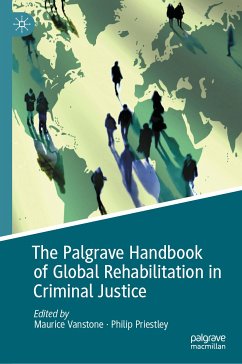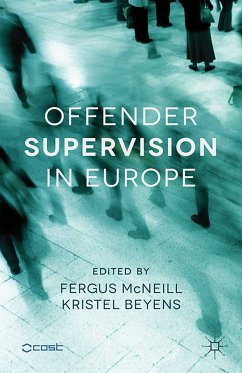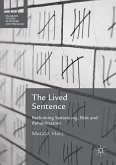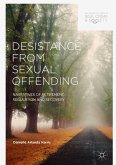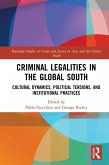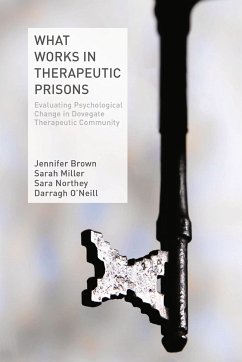- Shadd Maruna, Professor of Criminology, Queen's University Belfast, UK and President of the American Society of Criminology
This handbook provides a unique overview of rehabilitation as practiced internationally in criminal justice. Through the contributions of a diverse group that includes, among others, academics (some of whom are former practitioners), research students, a judge, and a probation chief, it reflects common features of criminal justice in different countries and documents their diversity and celebrates their vitality. In recent times the idea of 'law and order' has been expropriated by populist, authoritarian and doctrinaire regimes, almost always and nearly everywhere in the service of arbitrary and unjust rule. By and large this handbook does not include such regimes. But 'law' itself also has the capacity to constrain rulers, and 'order' in the form of social peace is a universally approved civic asset. In part, the book provides a counter-narrative demonstrating that although criminal justice dispositions such as probation, prisons, and parole can be represented as a 'via dolorosa', rehabilitation as illustrated in these pages can become a journey that leads by degrees towards the possibility of a better life. The handbook will be of interest to students, academics, practitioners, managers, policy makers and all those who wish to gain insight into the why and the how of rehabilitation in criminal justice systems across the world.
Maurice Vanstone is Emeritus Professor of Criminology and Criminal Justice at Swansea University, UK. He is the author of Supervising Offenders in the Community: A History of Probation Theory and Practice (2004) and co-editor (with Philip Priestley) of Offenders or Citizens? Readings in Rehabilitation (2010).
Philip Priestley is a former probation officer, academic and author of Victorian Prison Lives (1985). He has directed thirty broadcast films for UK television, including Video Letters (BBC 2 1991); Prix Europa, Berlin. He helped start services to victims and probation day centres as alternatives to prison. He is co-editor (with Maurice Vanstone) of Probation and Politics (2016).
Dieser Download kann aus rechtlichen Gründen nur mit Rechnungsadresse in A, B, BG, CY, CZ, D, DK, EW, E, FIN, F, GR, HR, H, IRL, I, LT, L, LR, M, NL, PL, P, R, S, SLO, SK ausgeliefert werden.
"Each chapter outlines the development, current approaches, theoretical underpinnings, specific challenges and future directions. ... it is heartening to see the attention paid to sensitivities including gender and ethnicity. This text is therefore not only meaningful and relevant to those in the probation field but also an interesting read that holds pertinence for allied professionals, both in academic and applied positions." (Jo Redcliffe, European Journal of Probation, Vol. 16 (2), 2024)
"This collection provides a clarion call for a reimagined rehabilitative endeavour that is rooted in these values ... is culturally sensitive and seeks to heal the harms resulting from criminality rather than compound them." (Lawrence Burke, Current Issues in Criminal Justice, November 29, 2023)
"The handbook features a superb collection of thirty-seven substantive chapters, written by more than sixty contributors. The breadth and depth of the material is impressive ... . a handbook that not only shines light on the diversity of rehabilitative work across the globe but instils a sense of hope, passion and empathy in the reader situates The Palgrave Handbook of Global Rehabilitation in Criminal Justice as an essential read for anyone interested in the theory, policy and/or practice of rehabilitation." (Helena Gosling, International Criminology, September 13, 2023)
"I found this book to be inspirational - and a constant reminder of the brilliant work that is attempted in the world of a rehabilitative ideal, often in the face of adverse conditions. ... A fascinating book, well worth reading in full, or dipping in and out of." (Chris Martin, BJCJ - The British Journal of Community Justice, July 26, 2023)

